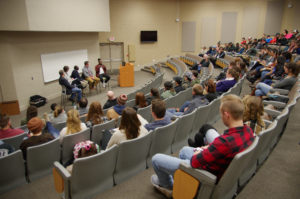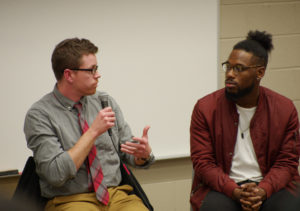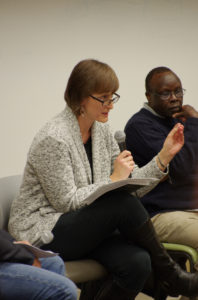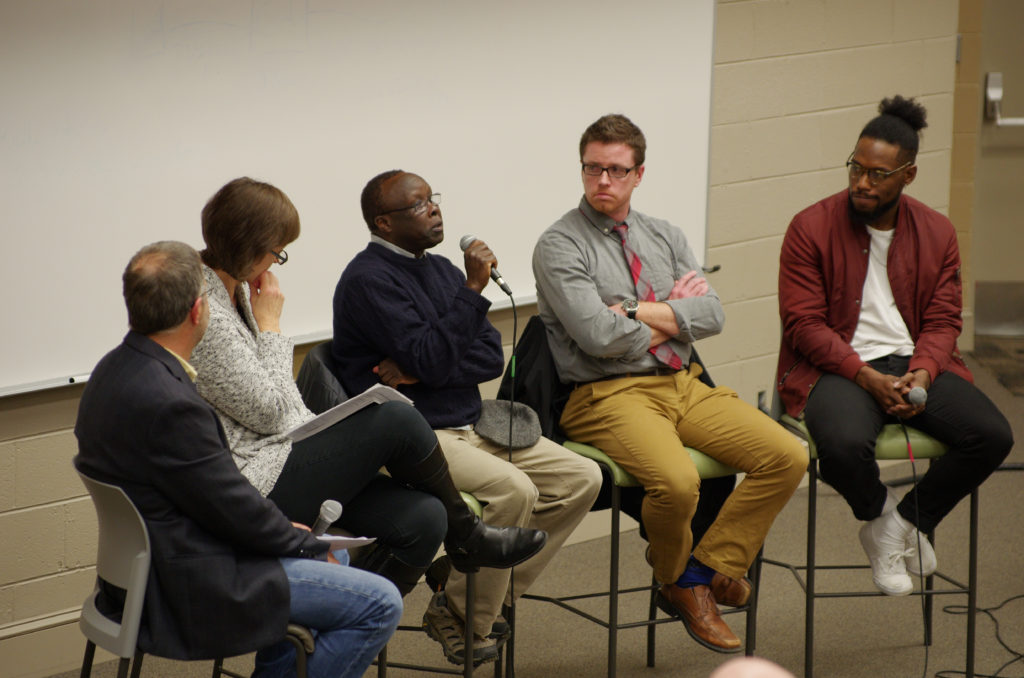“If you can’t see my color, you can’t see my oppression” was Trevor Wentt’s response when asked about people being “colorblind” in the United States.

The Milligan community gathered on Tuesday for the Lenses of the Black Experience event.
The campus conversation was organized by sophomores Teveraishe Mushayamunda and Mike Featherston and junior Jalen Glass. The speakers included Professor of Psychology Dr. Lori Mills, Associate Professor of English and Humanities Dr. Michael Blouin, Professor of Ministerial formation Dr. Gary Selby, Professor of Theology and World Christianity Dr. Samuel “Kip” Elolia, and visual arts director and seminary student Trevor Wentt.

The panel presented many different views as it was represented by both black and white speakers whose life experiences were very different.
The event was focused on exactly what the title says: lenses of the black experience.
The first hour, the speakers talked about their lives and their experiences with racism, whether that be as a black person or a white person, and observed how their lives differed because of their skin color. The second half, the panel answered questions that the students in attendance had submitted.

There were many topics covered. White privilege was talked about extensively, and Blouin recapped white privilege at Milligan when he said, “Most of us can leave this event and think that it was nice and then go on texting. It’s a privilege to be able to think about race in that way.”
The panel also spoke on what it is like to be black in the United States. Elolia shared a story about how, as a black man, it is hard to do simple things in the United States.
“When I drive, I make sure my wallet is right there so I can stick it like this–” he pretended to stick his hand out of a car window–”and I don’t think many of you travel like that.”

The speakers also covered racism, institutional racism, the “n word,” and the use of the Confederate flag. Elolia shared about his transition from Africa to North America.
“Racism is real, and coming to North America I had no idea,” he said.
“I thought [the event] went very well,” Glass said. “I think it’s a stepping stone for us as a school to do more. Of course, there are always going to be people who don’t like the fight for social justice, because equality looks like oppression when you are used to privilege. However, I think that to begin to understand each other we have to have conversations like this, because black issues are Christian issues, American issues and everybody issues. By doing this we can build bridges and reconcile.”
To end the night, Elolia explained how one cannot be racist and a Christian.
“To ignore one person is to turn one’s back on the gospel, because the gospel is inclusive, and to do anything but that is sinful.”

